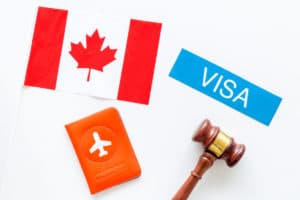
Parents and Grandparents Super Visa Holders Can Soon Stay In Canada For Up To 7 Years
Holders of the Parents and Grandparents Super Visa will be able to stay in Canada for up to seven consecutive years under changes to the

Holders of the Parents and Grandparents Super Visa will be able to stay in Canada for up to seven consecutive years under changes to the

New immigrants to Canada through the Parents and Grandparents Program have increased by more than double in the first quarter of 2022, compared with last

Foreign nationals who want to work, study or visit Canada usually need to get a Canada visa and applying for one can be relatively easy

Immigrating to Canada permanently or simply coming to work or study for a few years often leaves foreign nationals scratching their heads as to which

Canada has announced it will accept an additional 30,000 applications under the 2021 Parents and Grandparents Program. The additional allocation, announced by Immigration Minister Marco

Foreign nationals hoping to immigrate to Canada in 2021 will be able to take advantage of five ways to gain their permanent residence once Covid-19

Billboards have sprung up in Silicon Valley as part of a campaign by the Canadian technology industry to lure workers hit by Donald Trump’s H-1B

Canada has announced new Post-Graduation Work Permit (PGWP) rules for international students forced to study via distance learning because of restrictions to stop the spread

International students considered coronavirus essential workers in Canada have been exempted from the 20 hours of work per week limit usually applied to study permit

Haitian Montrealers have written an open letter to both the Quebec and Canadian governments asking help for a special program for people immigrating from Haiti

Immigration, Refugees and Citizenship Canada (IRCC) will increase fees for all permanent residence applications in Canada, including economic, permit holder, family and humanitarian classes as

Immigration programs that seek to attract highly skilled and highly educated foreign nationals to Canada have been so successful that racialized women now hold more

A petition to increase the duration of the Post-Graduation Work Permit (PGWP) has been filed in the Canadian House of Commons. The petition, e4454 for

Are you a candidate with skills and qualifications in one of Canada’s 82 jobs for occupation-specific Express Entry draws? We want to help you move to Canada. Please submit

Ford’s government wants to reserve close to all of Ontario’s available international student spots for pubic colleges and universities, which will alienate private career colleges.